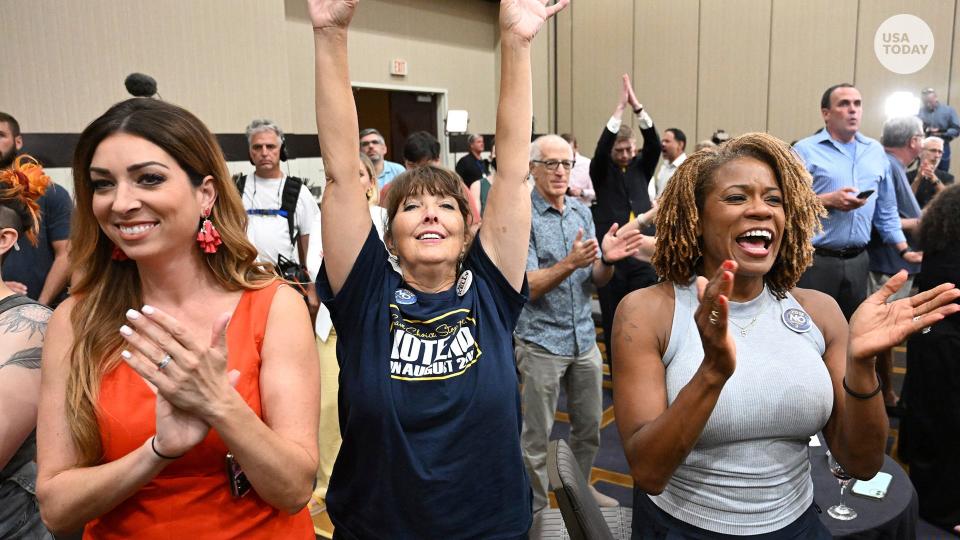Is the Kansas vote a warning to Florida Republicans?

We told you so. There. I said it.
I don’t say it often, but who can resist an opportunity to actually point to something and say: “See? We were actually right about this thing.” I’m rarely able to do so – so much of what we deal with in my field of study is murky; indefinite - vague in limitless ways. But there was no mistaking the roundhouse punch landed by Kansas voters last Tuesday directly square to the jaw of those who might inflict radical abortion bans in that state.
I’d like to claim that my perception was near-mystical in this, but the fact is that its due to a simple fact: I can read a poll. The numbers at the mean on this issue nationwide signal an almost identical split to the one that emerged in Kansas. Most folks in the US favor a right to at least some access to abortion, and a similar number see total bans on the procedure as an assault on women’s rights.

Kansans faced a ballot initiative that would have removed the caveat scribed in the state constitution guaranteeing the right of people to access the procedure, and to turn over policymaking in this area to the state legislature. So sure of their ground were the extremists that several lawmakers talked of a “total ban” and “no exception for incest and rape victims” and “life begins at conception.”
Kansans swept the initiative aside 60-40. A massive win for Democrats? No. A massive win for Republicans. I taught in Kansas for several years, near the progressive town of Lawrence - home to the University of Kansas. It is one of the only loosely liberal islands in the state, and even there the redness of the political aura was palpable. While I would never think of depriving Democrats of their pride in their ability to turn out the vote on this issue, or to organize around it, the simple fact is that there are not very many Democrats in Kansas.
Abortion could be a marquee issue for the GOP only as long as it did not threaten to become reality. As the practical side of the bans begins to sink in, the median Republican voter is becoming far more cautious. Which raises the central question: what does this mean elsewhere?
Kansans did not stop being conservatives through this vote. At the same time they threw out the initiative, they also defeated an incumbent congressperson in the primary largely because he voted to impeach then-President Trump. Their candidate for governor is an arch-conservative, if only of the business conservative variety and there is no indication, in places like Dodge City or Ottawa or Wichita, of a freshet of Republicans flooding into registration offices to reveal a sudden heart-felt conversion to the “D” column.
The emerging fact of the matter is one we’ve known for years: the issue of access to abortion in some or all cases is simply not a party issue – at least not when actual, radical policy change can occur. It is orthogonal to the usual left-right continuum – it’s neither left nor right, but at right-angles, shooting off in odd directions depending on any number of considerations which may or may not align with other political concerns. It is not even a conservative issue. Those who may firmly believe that decisions should be made primarily by state legislatures do not automatically convert this to a belief in the goodness of a particular policy position.
As we near November, here in far more diverse Florida, candidates need to be very aware that discontent with a position like this could influence the vote in much wider ways.
Non-party voters (33% of the voting public in Florida) are far more volatile, and Republicans need to be very aware of the possibility of fouling their game with one of the great loser strategies of politics - usually associated with progressive Democrats: preferring to be “right” rather than to win.
R. Bruce Anderson is the Dr. Sarah D. and L. Kirk McKay Jr. Endowed Chair in American History, Government, and Civics at Florida Southern College and Miller Distinguished Professor of Political Science. He is also a columnist for The Ledger and political consultant and on-air commentator for WLKF Radio in Lakeland.
This article originally appeared on The Ledger: Is the Kansas vote a warning to Florida Republicans?

